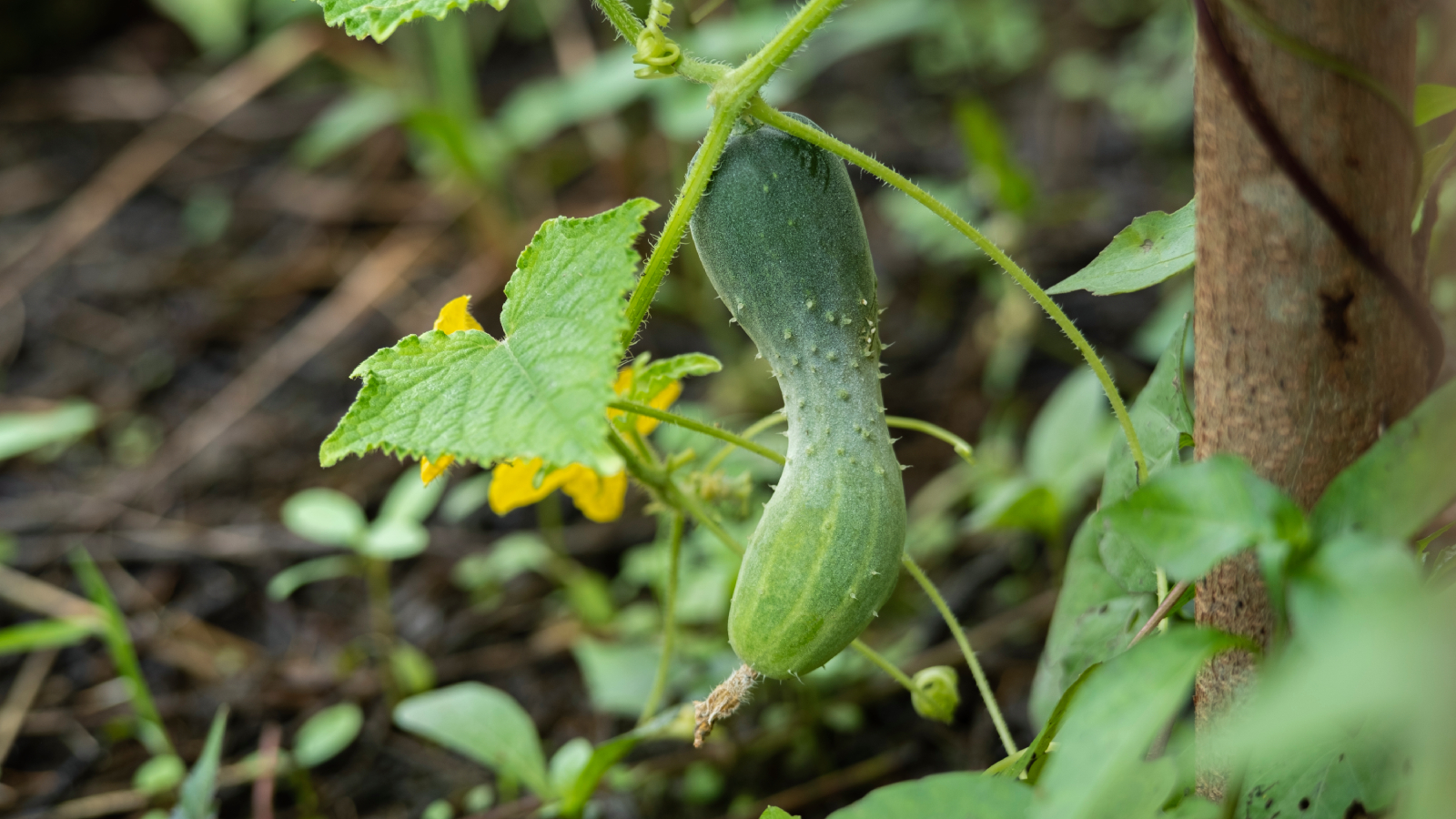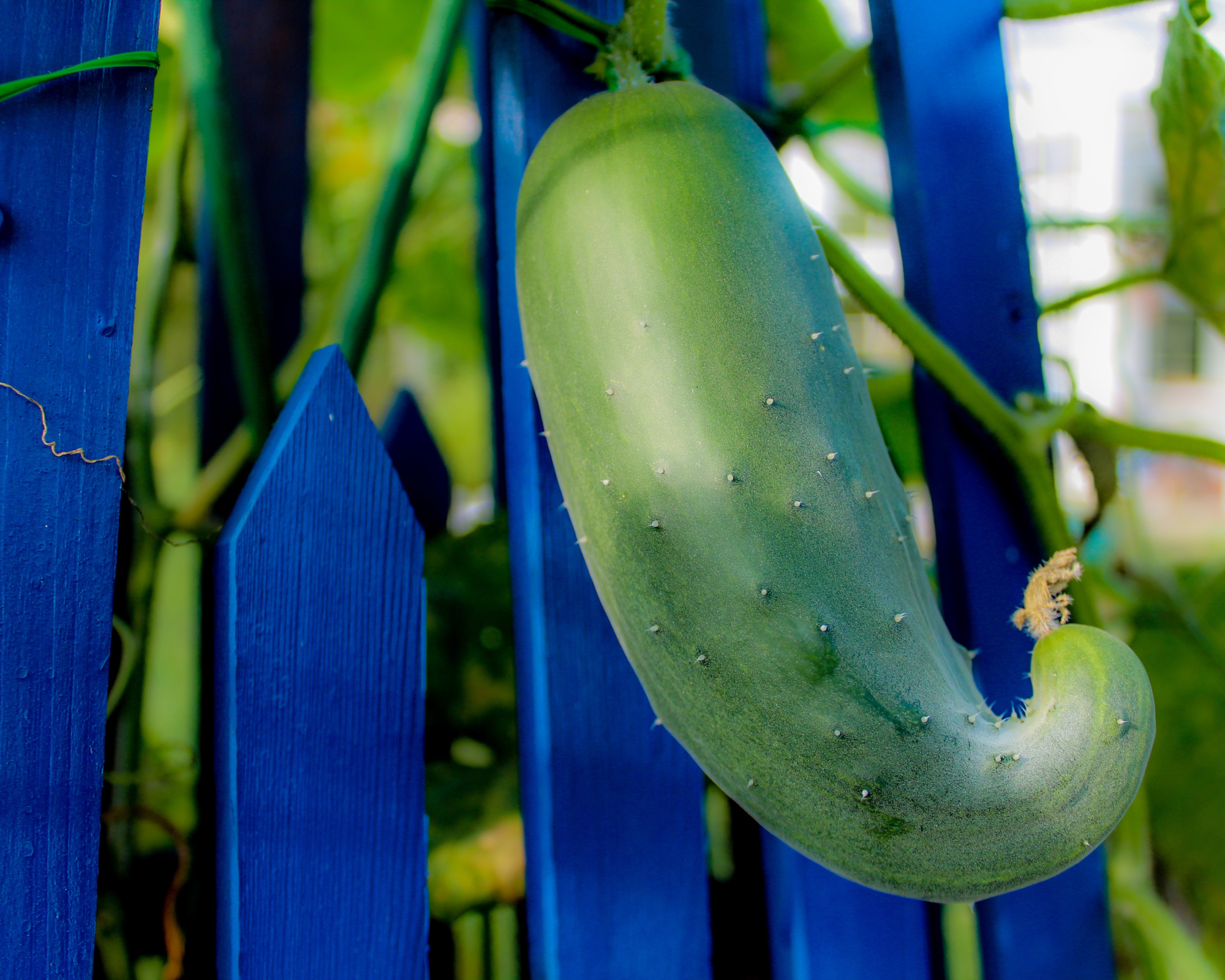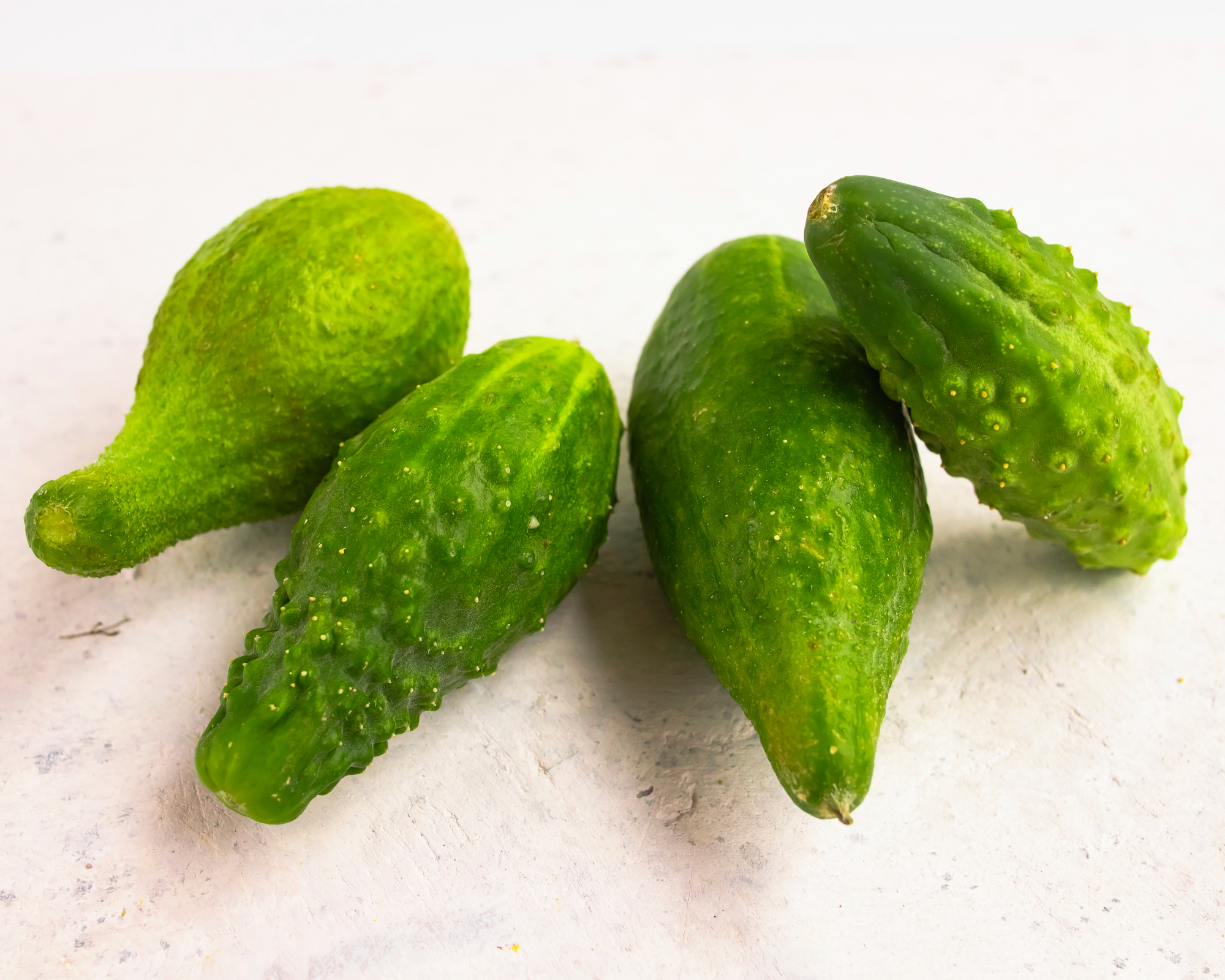
Sign up for the Gardening Know How newsletter today and receive a free copy of our e-book "How to Grow Delicious Tomatoes".
You are now subscribed
Your newsletter sign-up was successful
Cucumbers are a fantastic addition to a summer vegetable garden. They are delicious, quick growing, and nutritious. They are one of my favorite vegetables to grow. That being said, they can have some issues.
Have you ever been growing cucumbers and you went to harvest your cukes only to find deformed cucumbers? If you find pointy or otherwise misshapen cucumbers you are likely wondering what happened.
Weird shaped cucumbers might be caused by a few issues. Read on to learn what caused your oddly shaped cukes and what you can do about it.
Why Is My Cucumber Deformed?

Deformities in cucumbers may be caused by issues with the pollination process or fertility of the plant, the temperature at which the fruit is growing, the amount of water the plant receives, or mechanical injury.
For example you may get misshapen fruit if it gets caught between the cucumber fence or trellis. As the fruit grows, it may end up bent oddly.
Cucumbers require a lot of water, after all, the fruit is made up of mostly water (95 %). So it stands to reason that if the plants are not kept properly watered the fruit may suffer. This is most often observed during the hot, dry months of summer when the temperatures are high and the fruit is rapidly developing, they are more susceptible to uneven water supplies. Setting up an irrigation system, like the Rain Bird Garden Watering Kit from Amazon, could help to prevent this.
On the subject of temperature, cucumbers grow best when temps are between 75-85 F (24-29 C). When temperatures exceed this range, flower bud production can be skewed resulting in oddly shaped fruit.
Sign up for the Gardening Know How newsletter today and receive a free copy of our e-book "How to Grow Delicious Tomatoes".
Deformed fruit may also be the result of a lack of fertility. Cucumbers are heavy feeders and should be fed every 2-3 weeks with a balanced fertilizer or side-dress the plants with a complete fertilizer.
Lastly, misshapen cucumbers may be the result of poor pollination. Insufficient pollination can cause deformities. That said, even when pollination occurs, fruit can become deformed.
How To Prevent Deformed Cucumbers

To prevent crooked or otherwise deformed fruit, make sure to keep the cucumber plants consistently moist, not sodden, especially during periods of high heat.
If temperatures ramp up and the fruit and blossoms are beginning to form, tent or shade the plants with a plant shade like this from Amazon during the hottest part of the day. Be sure to uncover them in the early morning and the evening as temperatures cool so they can be pollinated.
On the pollination note, you can also hand pollinate your cucumber blooms using a cotton swab or light paint brush. Move the pollen from the pollen-laden stamen of the male flower and gently transfer it to the female flower’s stigma. This will greatly increase the chances of fruit formation caused by low pollination.
Keep the cucumber plants well fed. Feed them every 2-3 weeks with a balanced fertilizer or use an organic fertilizer that has a slower, more balanced release of nutrients.
Are Deformed Cucumbers OK To Eat?
Yes, deformed cucumbers are okay to eat. There isn’t anything wrong with them beyond a different look. They will taste just fine.
Frequently Asked Questions
Why are my cucumbers curling?
Curling cucumbers may be the result of insufficient water, pollination or fertilizer. They may also become misshapen due to mechanical injury or even overly high growing temperatures.
Why are my cucumbers shaped like a ball?
Cucumbers may become misshapen for a number of reasons including low pollination, lack of water or fertilizer, high temperatures or mechanical injury.
Fruit that is ball shaped is more likely due to the variety. The plant could be a lemon cucumber, a variety of round, yellow cucumber the size of a tennis ball.

Amy Grant has been gardening for 30 years and writing for 15. A professional chef and caterer, Amy's area of expertise is culinary gardening.
